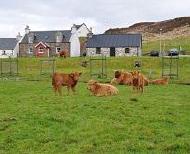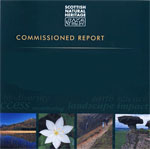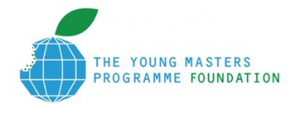

Global Citizenship blog
The Global Skills Gap
Three-quarters (74%) of the 500 business leaders polled by ICM Research worried that young people’s horizons are not broad enough to operate a globalised and multicultural economy.
Employers agreed with the statement that: “Unless we better support schools to teach young people to think more globally, the UK is in danger of being left behind by emerging economies such as China, India and Brazil”. The survey conducted on behalf of the British Council and Think Global gauged the extent to which business leaders saw global thinking as an important skill amongst employees and potential recruits.
93% of businesses thought it was important for schools to help young people develop the ability to think globally. 80% said schools should be doing more; only 2% said they should be doing less. In recruiting employees, more employers (79%) said knowledge and awareness of the wider world is more important than: degree subject and classification (74%); A-level results (68%); or A-level subjects (63%).
Read The Global Skills Gap here: www.think-global.org.uk/resources/item.asp?d=6404
MoreSCIPD Group Study Visit to the Netherlands
6th - 10th March 2012
Theme: The Circular Economy - Sustainable technologies, design, economics and production for the 21st century
 Education Scotland is inviting applications from secondary teaching staff for a group study visit to ‘s-Hertogenbosch in the Netherlands to investigate how cradle to cradle technologies and a circular economy can be used as a rich and stimulating context for interdisciplinary learning relating to sustainable development education and global citizenship. This visit has been arranged in partnership with the Ellen MacArthur Foundation.
Education Scotland is inviting applications from secondary teaching staff for a group study visit to ‘s-Hertogenbosch in the Netherlands to investigate how cradle to cradle technologies and a circular economy can be used as a rich and stimulating context for interdisciplinary learning relating to sustainable development education and global citizenship. This visit has been arranged in partnership with the Ellen MacArthur Foundation.
The Scottish Government is committed to a low-carbon and zero-waste economy, and it is important to develop enterprise, creativity and STEM (Sciences, Technologies, Engineering and Maths) skills in young people to ensure the realisation of these ambitious plans for the future. The circular economy concept proposes the use of sustainable technologies and innovative design and production methods that minimise waste and reduce the exploitation of the earth’s precious resources. Industrial companies in the Netherlands are at the forefront of developing products that mimic natural processes and that are designed for disassembly and reuse.
Education Scotland, in collaboration with The Ellen MacArthur Foundation, is developing strategies for professional development around sustainable development education and the circular economy to encourage the setting up of communities of practice among practitioners in Scotland. These will provide opportunities for ongoing, localised support and collaboration as recommended by Teaching Scotland’s Future.
It is expected that the visit to the Netherlands will include:
- Orientation sessions with the Ellen MacArthur Foundation and the Dutch curriculum agency SLO, to introduce participants to the model of the circular economy and brief them on the structure of the Dutch school system and curriculum
- Visits to businesses which have adopted cutting-edge approaches to circular economy principles
- Visits to schools to see how learning relating to the circular economy is being used as a theme for interdisciplinary learning around sustainability
Travel to the Netherlands will be on Tuesday 6th March, with three working days in the area, followed by return to Scotland on Saturday 10th March.
SCIPD funding will cover return flights to the Netherlands, airport to hotel transfers, and overnight hotel accommodation in ‘s-Hertogenbosch on a bed and breakfast basis.
Participants will be offered a pre-visit preparatory meeting, and a post-visit meeting to support follow-up activity and encourage wider impact.
This study visit is targeted at education professionals in Scottish secondary schools, particularly teachers of sciences, technologies, mathematics, business studies, economics and geography.
Expected learning outcomes
Participants will have an opportunity to:
Upon returning from the study visit, participants will be expected to:
Applicants may wish to use the experience of the study visit towards professional recognition by GTCS or simply to enhance their professional understanding and practice.
Applications are invited from suitably qualified members of Scottish school or authority staff, who should complete the Netherlands group application form available below or from Nick Morgan at [email protected]
The closing date for applications is Tuesday 21st Feb 2012
SCIPD Netherlands application form
More For the first time, everything you want to know about Scotland’s environment will now be available at the touch of a button on a new website provided by Scotland’s key environment and health agencies.
For the first time, everything you want to know about Scotland’s environment will now be available at the touch of a button on a new website provided by Scotland’s key environment and health agencies.
Scotland’s Environment Web – named SEweb – aims to be the gateway to everything you want to know about Scotland’s environment. This three year project, supported by funding from the European Union, will put Scotland at the global forefront of sharing environmental information, prioritising problems and involving citizens in assessing and improving their own environment.
Features of SEweb will include:
Visit the website at: http://www.environment.scotland.gov.uk/default.aspx
More Crofting Connections is a 3-year long educational project which started in August 2009. It aims to enable over 1,200 young people aged 5 to 16 living in remote rural communities throughout the Highlands & Islands to learn about crofting past, present and future.
Crofting Connections is a 3-year long educational project which started in August 2009. It aims to enable over 1,200 young people aged 5 to 16 living in remote rural communities throughout the Highlands & Islands to learn about crofting past, present and future.
It is funded by HLF, SNH, LEADER, HIE and the Craignish Trust.
Its key outcomes for young people are for an increased:
The lead partners in the project are Soil Association Scotland and the Scottish Crofting Federation. To read more about this exciting project an about the impact it has had on learning teaching then download the Interim Report (you will need a Glow password to access this link).
More This report, Commisison by Scottish Natural Heritage (SNH), presents the findings of research undertaken in 2010/11 among a representative sample of young people, aged 11-17, living in Scotland, to establish their attitudes and behaviours towards enjoying the outdoors and participation in outdoor recreation activities. The research findings will be used by SHN and its partners to help develop a programme of work to promote wider participation among this audience.
This report, Commisison by Scottish Natural Heritage (SNH), presents the findings of research undertaken in 2010/11 among a representative sample of young people, aged 11-17, living in Scotland, to establish their attitudes and behaviours towards enjoying the outdoors and participation in outdoor recreation activities. The research findings will be used by SHN and its partners to help develop a programme of work to promote wider participation among this audience.![carnwath_1[1]](../../../globalcitizenship/files/2011/10/carnwath_11-300x166.jpg) http://teachinginnature.stir.ac.uk/index.html
http://teachinginnature.stir.ac.uk/index.html
Take a group of teachers, introduce them to the wonders of a local natural place and then leave them to do what they do best. The results? Exciting, creative and motivating cross-curricular outdoor learning opportunities for pupils – and teachers who are confidently using the site across the curriculum!
Last year four groups of teachers met with Scottish Natural Heritage (SNH) National Nature Reserve (NNR) managers to learn about the natural and cultural features that make their site special. Over the course of the school year these teachers, from early years, primary, secondary and special schools, worked collaboratively to develop activities for their classes to do on these sites and test them out. Find out more about the project from the teachers and pupils themselves at http://teachinginnature.stir.ac.uk/index.html
A report on the project was written by educational researchers from the University of Stirling, who provided invaluable support and insight throughout the project. This is available at:
http://www.snh.gov.uk/publications-data-and-research/publications/search-the-catalogue/publication-detail/?id=1839.
MoreRecently, two very dynamic maths teachers, Chris Smith and Aimee Strange, together with a group of very talented pupils, delivered a session for practitioners during the ‘Leadership of Global Citizenship’ open day at Grange Academy. “I want to teach maths in a way that makes sense of the world” said Chris Smith. Below are some links and resources from Chris, Aimee and the pupils, providing an insight into the way in which Maths is taught at Grange, embedding global citizenship throughout the curriculum. They are very happy for others to use these materials….
Our presentation
http://prezi.com/rqzk_r-j1kih/global-citizenship
All of the lessons we created and the tools used to deliver them are available on the website below
www.enterprisingmaths.com/citizenship/
Many of these resources were created using Amnesty’s Citizenship book: http://www.amnesty.org.uk/books_details.asp?BookID=10
You can download the pupil presentations here
Chris also writes a weekly newsletter for the department which includes loads of lesson ideas (for example the citizenship lessons will be included) , maths puzzles, useful websites, etc. Here are some sample newsletters:
Maths at Grange Academy issue151pdf
Maths at Grange Academy issue152pdf
MoreEthCo has announced the school winners in this year’s Challenge competition. The Challenge was to use one of the EthCo tasks to promote Interdisciplinary Learning in the spirit of Curriculum for Excellence, and be able to demonstrate this learning in a vibrant and clear manner.
For more information see: http://bit.ly/oMLECy
More Scotland’s Futures Forum has developed three thought-provoking scenarios exploring what sustainable communities might look like, in Scotland, in 2030. Each scenario is accompanied by a short film and podcast.
Scotland’s Futures Forum has developed three thought-provoking scenarios exploring what sustainable communities might look like, in Scotland, in 2030. Each scenario is accompanied by a short film and podcast.
The scenarios are very accessible and throw up interesting and pressing questions for politicians, policy makers and for wider Scotland. These scenarios are not predictions but can be used as a tool to question and assess our understanding of sustainability, of community and how we are preparing for the future.
More at: http://scotlandfuturesforum.org/index.php?id=101
More The Young Masters Programme on Sustainable Development is a global web-based education and learning network. It is free of charge and is open to students (16–18 years old) and their teachers from all over the world.
The Young Masters Programme on Sustainable Development is a global web-based education and learning network. It is free of charge and is open to students (16–18 years old) and their teachers from all over the world.
Extensive online teaching material gives the students a thorough understanding of sustainability issues and solutions. Challenging assignments in their local communities inspire students and enhance their interest in the studies.
Teachers and students from all corners of the world are brought together in virtual classrooms to compare and discuss their results, and to receive and give feedback on their assignments. In the online community, students learn from each other by sharing first-hand information with their peers in different countries. They also gain an understanding of common sustainability challenges and what different local perspectives and solutions exist.
The Young Masters Programme has been developed at the International Institute for Industrial Environmental Economics (IIIEE) at Lund University in Sweden and is an integral part of the UN Decade of Education for Sustainable Development (DESD, 2005–2014) led by UNESCO. The programme is managed by an independent, non-profit foundation, the Young Masters Programme Foundation (YMPF). Close ties and collaboration with Lund university and the international scientific community ensures that the basic course content is reliable and in concordance with the latest scientific knowledge.
Find more information about the YMPF at www.ympfoundation.org
Enrol in the programme by visiting http://www.goymp.org/
More
Find us on